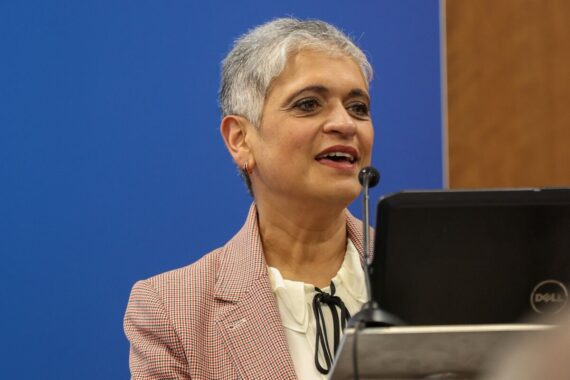Professor Kamila Hawthorne: ‘GP employment paradox must be resolved’

RCGP chair Professor Kamila Hawthorne on the damning state of the workforce for new GPs
When GPs and patients are both frustrated with long waits for appointments that are too short, we should be welcoming newly qualified GPs into the workforce with open arms. But our latest polling has found the reality is very different.
Our survey of GP registrars (and some now newly qualified members) due to complete training between July and September this year found that only 47% of respondents have secured an NHS GP job in the UK, with 41% of these finding the process moderately or very difficult.
Of the 49% who were currently applying for or considering work as a GP in the UK, 86% had struggled to find an appropriate role. On average, they had applied for around 13 jobs each.
It’s absolutely staggering that there are not enough GP roles available when existing GPs are being pushed to breaking point. It’s especially worrying to see stark regional disparities in our findings, with GPs struggling hardest to find roles in areas that have higher levels of deprivation – potentially further entrenching health inequalities.
A large proportion of our GP trainees are from overseas, so it’s concerning that 29% of those struggling to find a job as a GP said this was because they could not find roles in surgeries that can support their visa sponsorship. After investing significant time and money (around £200k per trainee) in training, many of our newly qualified GPs who are skilled and dedicated International Medical Graduates, and who want to work in the NHS, could be forced to leave the UK because their visas are not extended.
It’s no wonder that our soon-to-be qualified GPs are stressed and anxious about their futures. One respondent told us that they ‘feel completely broken and demoralised’ by the job hunt, while another said, ‘this period has been the worse experience of my life.’
What sort of message is it for our medical students and doctors considering GP specialty training, if there’s no guarantee of a role at the end of it?
It makes no sense by any measure, and we need to put it right – not only for GPs just embarking on their careers, but for the existing GPs who are being stretched to their limits, and patients who need their care.
A key factor in getting to this point has been restrictions within the Additional Roles Reimbursement Scheme (ARRS), which stipulated its funding could not be used to hire GPs. Instead, cash-strapped and under pressure practices used the funding available to them to hire support roles, such as pharmacists and physiotherapists. While members of the wider practice team are highly valued, these roles aren’t substitutes for GPs and mustn’t be used to plug gaps in the workforce.
In response to the RCGP and others highlighting this issue, the new government has extended ARRS funding, so that a new pot of money can be used to employ GPs. This is a positive step and something the College called for, but implementation will be vital. We’ve been speaking to Wes Streeting, the Health Secretary, to offer suggestions as to how to make this work for patients and general practice, including geographical flexibility for these roles as well as streamlining the application process and steps to make them as substantial and attractive as possible.
But this intervention is only a short-term solution. Longer term we want to see far more investment into core funding for practices, so that they can decide how to use it – including who they hire – in the best interests of their patient population.
There are other things we want to see happen, too. We want International Medical Graduates to have the right to apply for indefinite leave to remain on completion of their GP training. That they can’t is unfair - trainees qualifying in other medical specialties don’t face this issue because their training programmes are longer – and causes considerable distress to IMGs coming to the end of their training.
The health secretary has acknowledged the vital importance of general practice and pledged to shift more resources into the service. That’s certainly a first step in addressing the years of underfunding of general practice and poor workforce planning that has led to the current workforce crisis but will take time to deliver. In the meantime, we urgently need to see this paradox of GPs being trained and then not being able to find work, whilst patients are crying out for our care, resolved.
Professor Kamila Hawthorne is chair of the Royal College of General Practitioners
Pulse July survey
Take our July 2025 survey to potentially win £1.000 worth of tokens

Related Articles
READERS' COMMENTS [1]
Please note, only GPs are permitted to add comments to articles












Might I suggest a more realistic headline:
Professor Kamila Hawthorne: ‘GP employment paradox wont be resolved’